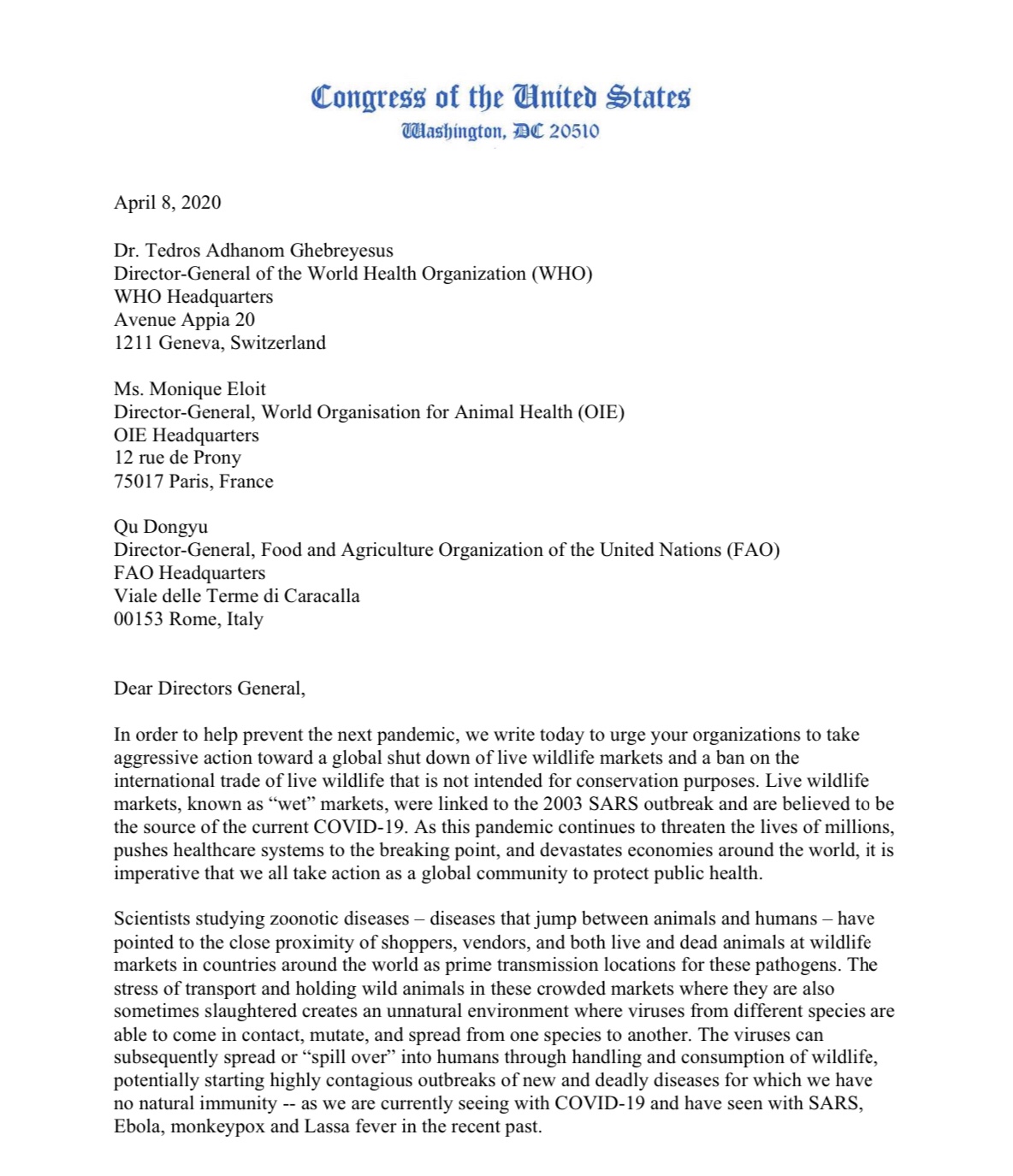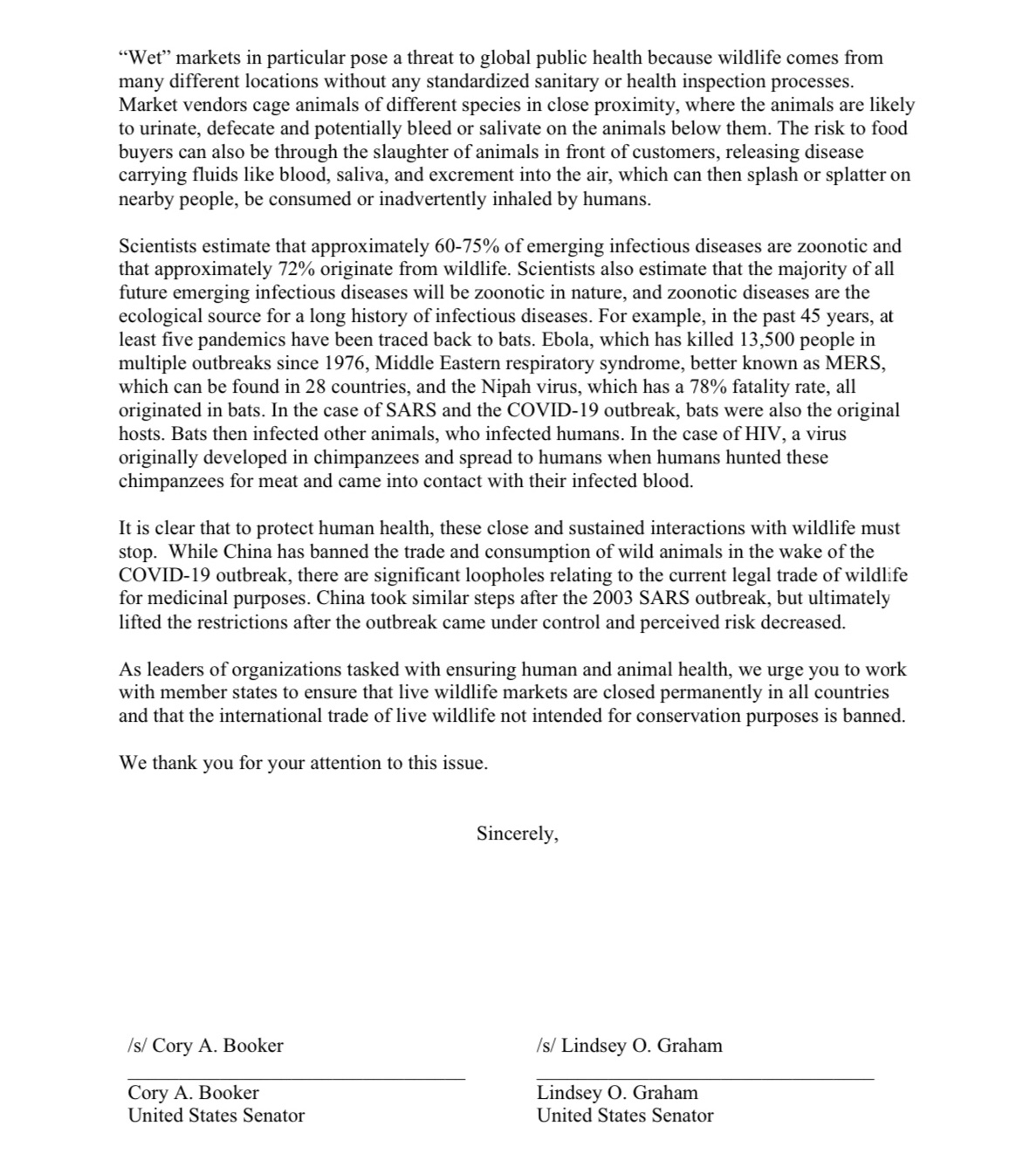Cory Booker Among More Than 60 U.S. Senators & Representatives Urging The World Health Organization To End Wet Markets

A bipartisan group of United States senators and representatives have sent a letter urging the World Health Organization (WHO) to take “aggressive action toward a global shutdown of live wildlife markets (wet markets) and a ban on the international trade in live wildlife.”
Senator Cory Booker (D-N.J.), Senator Lindsey Graham (R-S.C.), Congressman Mike Quigley (D-Ill.), and Congressman Michael McCaul (R-Texas) are among the prominent signatories on the letter that points out that a “wet market” is believed to be the source of the COVID-19 pandemic.
“Live wildlife markets, known as “wet markets,” were linked to the 2003 SARS outbreak and are believed to be the source of the current COVID-19,” noted the letter. “As this pandemic continues to threaten the lives of millions, pushes healthcare systems to the breaking point, and devastates economies around the world, it is imperative that we all take action as a global community to protect public health.”


Zoonotic diseases, which jumps from animals to humans, are responsible for 60% of emerging infectious diseases, the letter notes, and approximately 72% of those zoonotic diseases originate from wildlife.
“It is clear that to protect human health, these close and sustained interactions with wildlife must stop,” continued the letter, which pointed to studies that have determined “wet markets” where live and dead animals are sold to the public as “prime transmission locations” for these kinds of life-threatening pathogens.
“As the coronavirus wreaks havoc around the world, it is just common sense for the World Health Organization to use its power to make sure wildlife trafficking does not cause another pandemic in the years to come,” Brett Hartl, government affairs director at the Center for Biological Diversity, said in a statement.
High rates of deforestation and ballooning human populations are increasing wildlife exploitation and human encroachment into previously undisturbed habitat, leading to biodiversity loss. Before COVID-19, other dangerous illnesses like SARS, MERS, Ebola, and HIV, derived from wildlife. Scientists believe the majority of all future emerging infectious diseases in humans will come from wildlife.
“The coronavirus pandemic shows we can’t just go back to the status quo with how we treat wildlife,” stated Hartl. “Every nation on Earth, including the United States, must make changes if we are to have any chance of making COVID-19 the last pandemic that stems from the destructive trade in wild animals.”
As previously reported by WAN, in a separate letter sent earlier this week, more than 240 organizations urged the World Health Organization to “recommend that governments worldwide permanently ban live wildlife markets and the use of wildlife in traditional medicine.”
You can help all animals and our planet by choosing compassion on your plate and in your glass. #GoVeg
